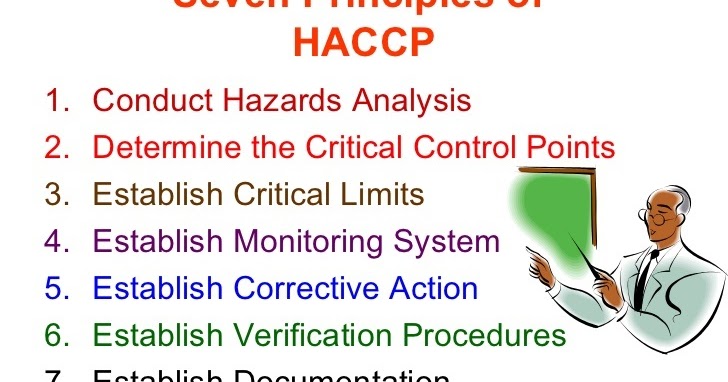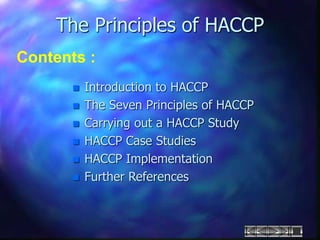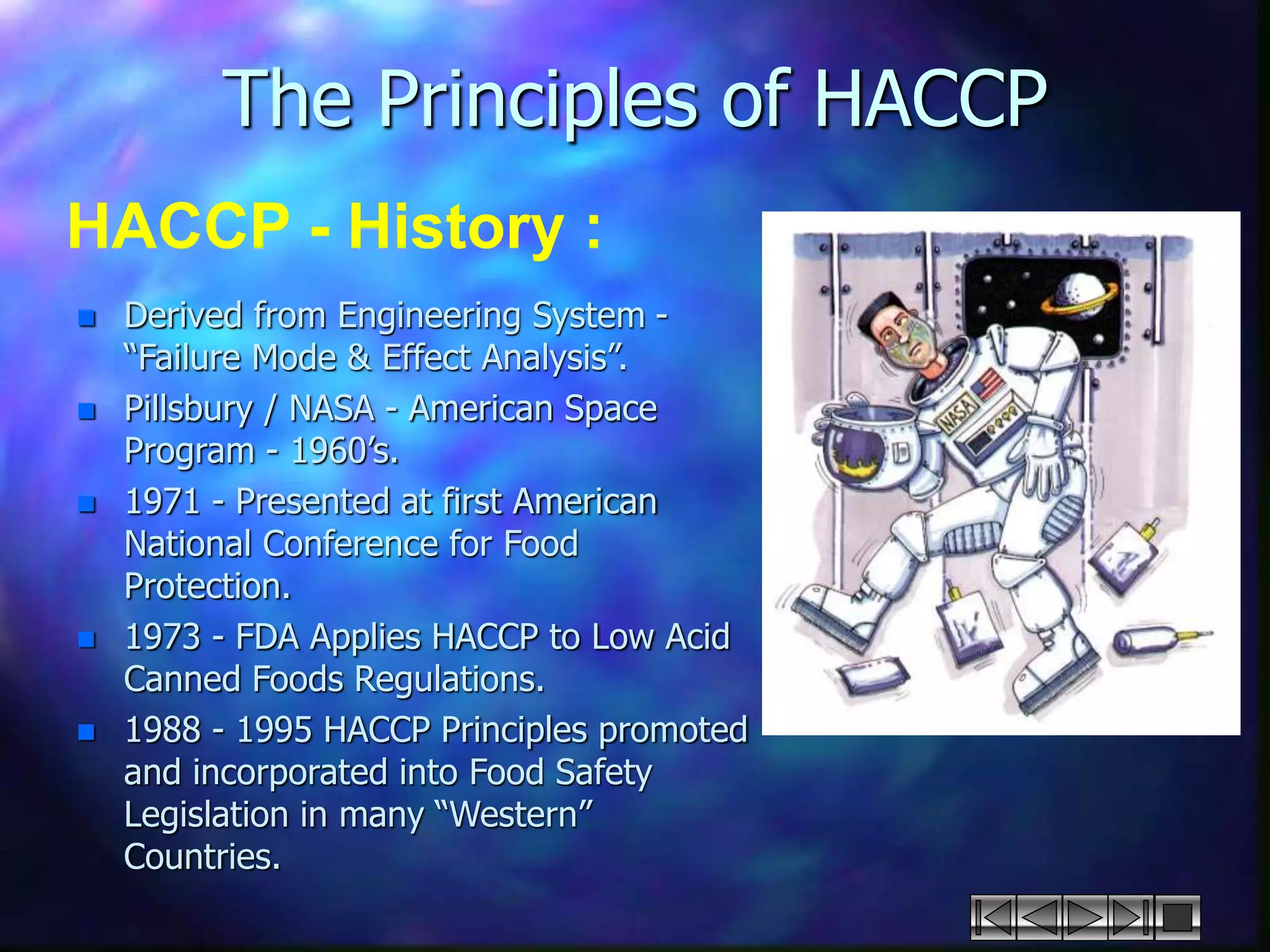Conducting a hazard analysis, determining critical control points (ccps), establishing critical limits, monitoring ccps, taking corrective … Hazard analysis and critical control points, or haccp (/ ˈhæsʌp / [1]), is a systematic preventive approach to food safety from biological, chemical, and physical hazards in production … Its definition, significance in food safety, detailed process, and core principles. Haccp is a management system in which food safety is addressed through the analysis and control of biological, chemical, and physical hazards from raw material production, … · haccp is based on seven principles: · haccp — which stands for hazard analysis and critical control points — is a systematic approach to identifying, evaluating, and controlling food safety hazards. · haccp (hazard analysis and critical control points) is a systematic preventive approach to food safety. Haccp (hazard analysis critical control point) is defined as a management system in which food safety is addressed through the analysis and control of biological, chemical, and physical … · explore haccps essence: Haccp is an internationally recognized method of identifying and managing food safety related risk and, when central to an active food safety program, can provide your customers, the … ‘haccp’ stands for hazard analysis critical control points, and is a food safety and risk assessment plan that was initially developed in the 1960s by nasa to solve two critical … It involves identifying, evaluating, and controlling hazards significant … Dive into the system ensuring culinary safety.
The Haccp Principle Every Canned Food Producer Must Know
Conducting a hazard analysis, determining critical control points (ccps), establishing critical limits, monitoring ccps, taking corrective … Hazard analysis and critical control points, or haccp...




